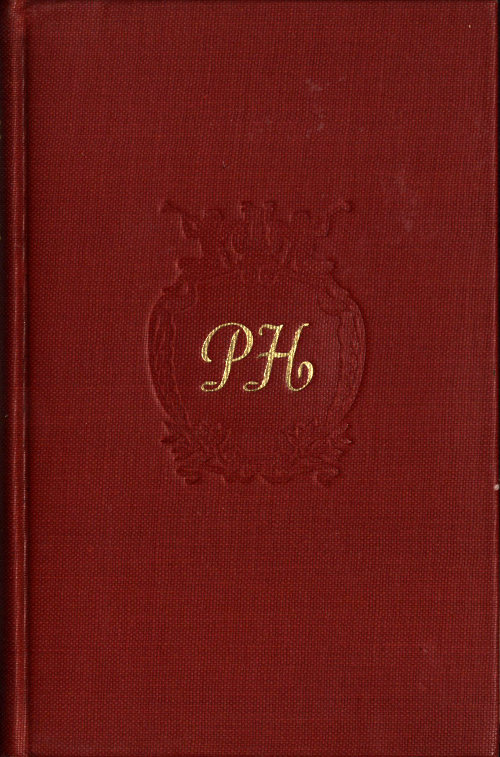

PHILIP HALE’S BOSTON SYMPHONY PROGRAMME NOTES
HISTORICAL, CRITICAL, AND DESCRIPTIVE COMMENT ON MUSIC AND COMPOSERS
Edited by
JOHN N. BURK
With an Introduction by
LAWRENCE GILMAN

Garden City, New York
DOUBLEDAY, DORAN & COMPANY, INC.
MCMXXXV
PRINTED AT THE Country Life Press, GARDEN CITY, N. Y., U. S. A.
COPYRIGHT, 1935
BY DOUBLEDAY, DORAN & COMPANY, INC.
ALL RIGHTS RESERVED
FIRST EDITION
EDITOR’S NOTE
This book, assembling the musical writings of Philip Hale, drawsprincipally upon the programme books for which he wrote descriptivenotes for thirty-two years of concerts by the Boston SymphonyOrchestra. Since the notes were addressed to audiencesapproaching the music with, presumably, open minds, the writerjudiciously withheld his individual opinion. This opinion he freelyexpressed in his newspaper reviews of the same concerts, extendingover an even longer period, and it has seemed advisable, bycombining the two, to bring together the critic and the historian.The editor has found, in the newspaper files, pertinent critical paragraphswhich are here used to introduce the programme notesabout each particular work. The transition from criticism to descriptivenote is indicated by a typographical ornament.
In going through the scrapbooks in the Allen A. Brown Roomof the Boston Public Library, wherein the newspaper criticisms ofPhilip Hale’s forty active years are carefully preserved, the editorcame across this observation by him, in the Boston Herald ofMarch 13, 1912: “In 1945 some student in the Brown Room of thePublic Library will doubtless be amused by opinions expressed byus all, of works first heard in 1912. Some of us will not then bedisturbed by his laughter or by quotations ornamented with exclamationmarks of contempt or wonder.”
There is cause for wonder, to a student at a time ten years shortof the year Mr. Hale mentioned; wonder, however, at his quickperception of essential values upon first hearing what time hassince proved a masterpiece, or considerably less than a masterpiece,vias the case may be. Few indeed are the professional judges ofmusic who are not glad to leave undisturbed in the dust of thenewspaper files some skeletons of their past—appalling errors ofdenunciation or proclamation. Again and again, when his fellowcritics of another day wrote laughably of a then new tone poem ofRichard Strauss or pastel of Claude Debussy, Philip Hale delivereda sane and still quotable judgment.
No attempt has been made to modify by omissions Mr. Hale’sfrank expressions of personal preferences among the composers.This writer never spoke as a major prophet, but as one who mightbe discussing a favorite subject over a demi-tasse. Anyone is privilegedto disagree, and those insisting upon their eternal verities arereferred to any